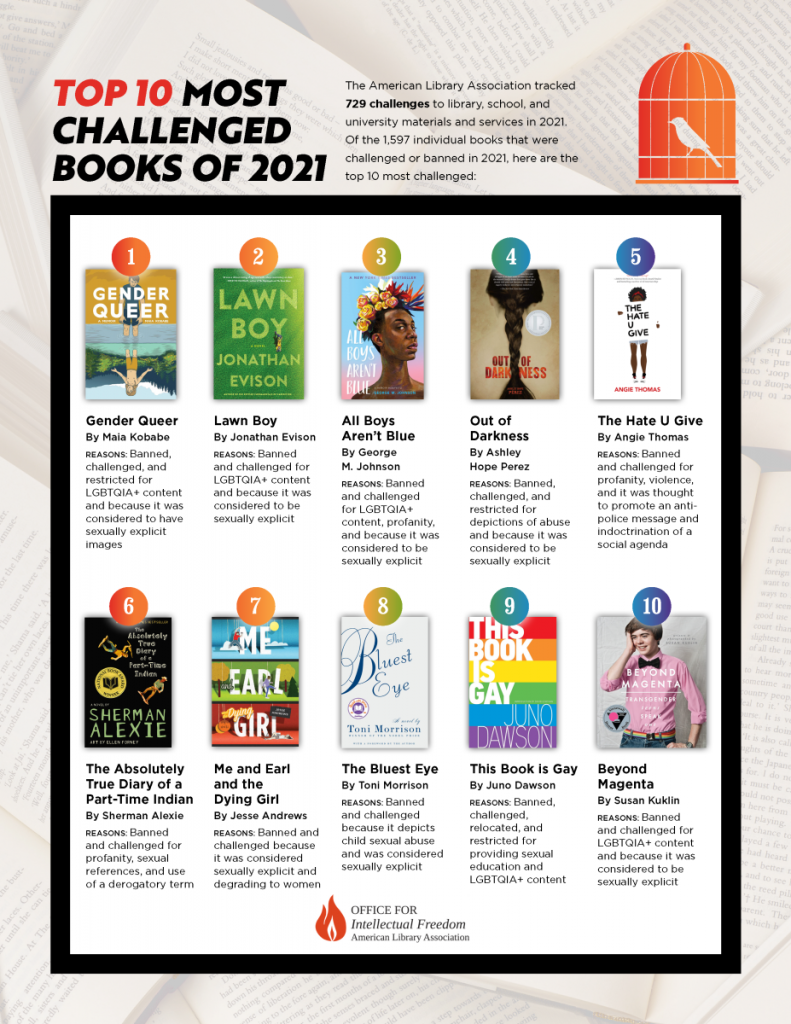Record numbers of challenges to books in schools, libraries, and book stores across the country were tracked by the American Library Association (ALA) in 2021. Over 729 challenges to materials and services were made, accounting for more than 1,597 individual book challenges or removals.
It’s hard to think of celebrating Banned Books Week when staff in Montana are resigning after bullet-ridden books were returned to the library. Or when a library director in Idaho resigned over the extremism she faced in her community. Libraries are being defunded in Michigan and teachers dismissed in Oklahoma, while fallout from the Don’t Say Gay bill racks Florida and challenged materials are separated from general collections in Texas.
It’s recent cases like those in Virginia, though, and the reality that most challenges don’t result in a ban that give us reason to celebrate Banned Books Week. This week celebrates the freedom to read and shines a spotlight on current and historical attempts to censor books in libraries and schools. By focusing on efforts across the country to remove or restrict access to books, Banned Books Week draws national attention to the harms of censorship.
For over 40 years, the ALA and libraries have celebrated Banned Books week with displays, read ins, collection highlights, and, more recently, social media campaigns. Follow #BannedBooksWeek on your platform of choice and see what people are saying. Have you read any of the books that have been challenged? Why do you think someone would challenge it? What does it mean to you to hear that someone challenged something you read?

The theme for Banned Books Week 2022 is “Books Unite Us. Censorship Divides Us.” Sharing stories important to us means sharing a part of ourselves. Books reach across boundaries and build connections between readers. Censorship, on the other hand, creates barriers. Banned Books Week is both a reminder of the unifying power of stories and the divisiveness of censorship, and a call to action for readers across the country to push back against censorship attempts in their communities.
The conversation around intellectual freedom, the right to read freely, and censorship is, of course, not limited to this week or to just libraries. Our freedom to read means little without a culture of conversation that allows us to discuss our freedoms openly, work through issues that books raise for our readers, and wrestle with the challenging balance between freedom and responsibility.
Read more about the history of Banned Books Week here and this year’s honorary Banned Books Week Chair here.
